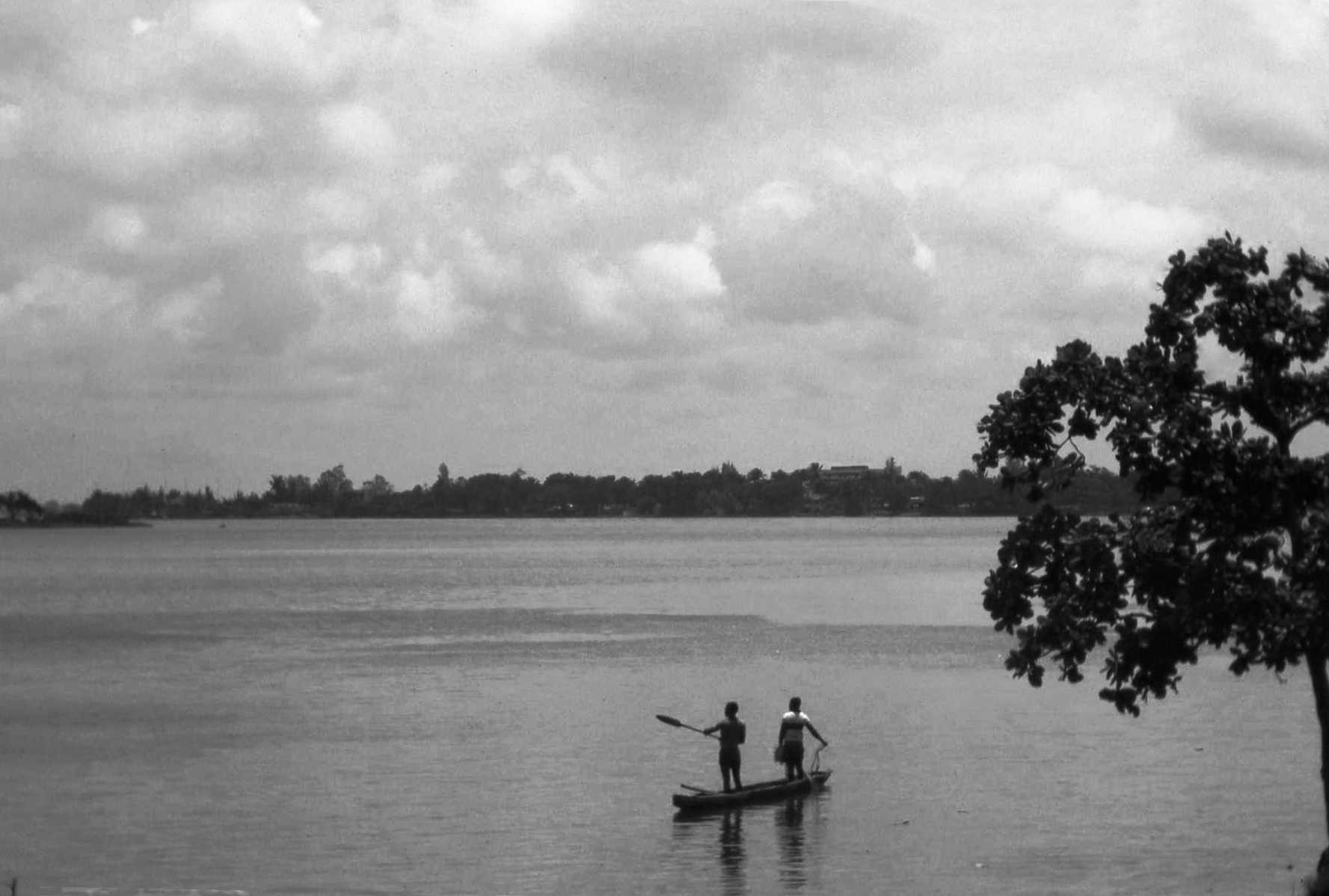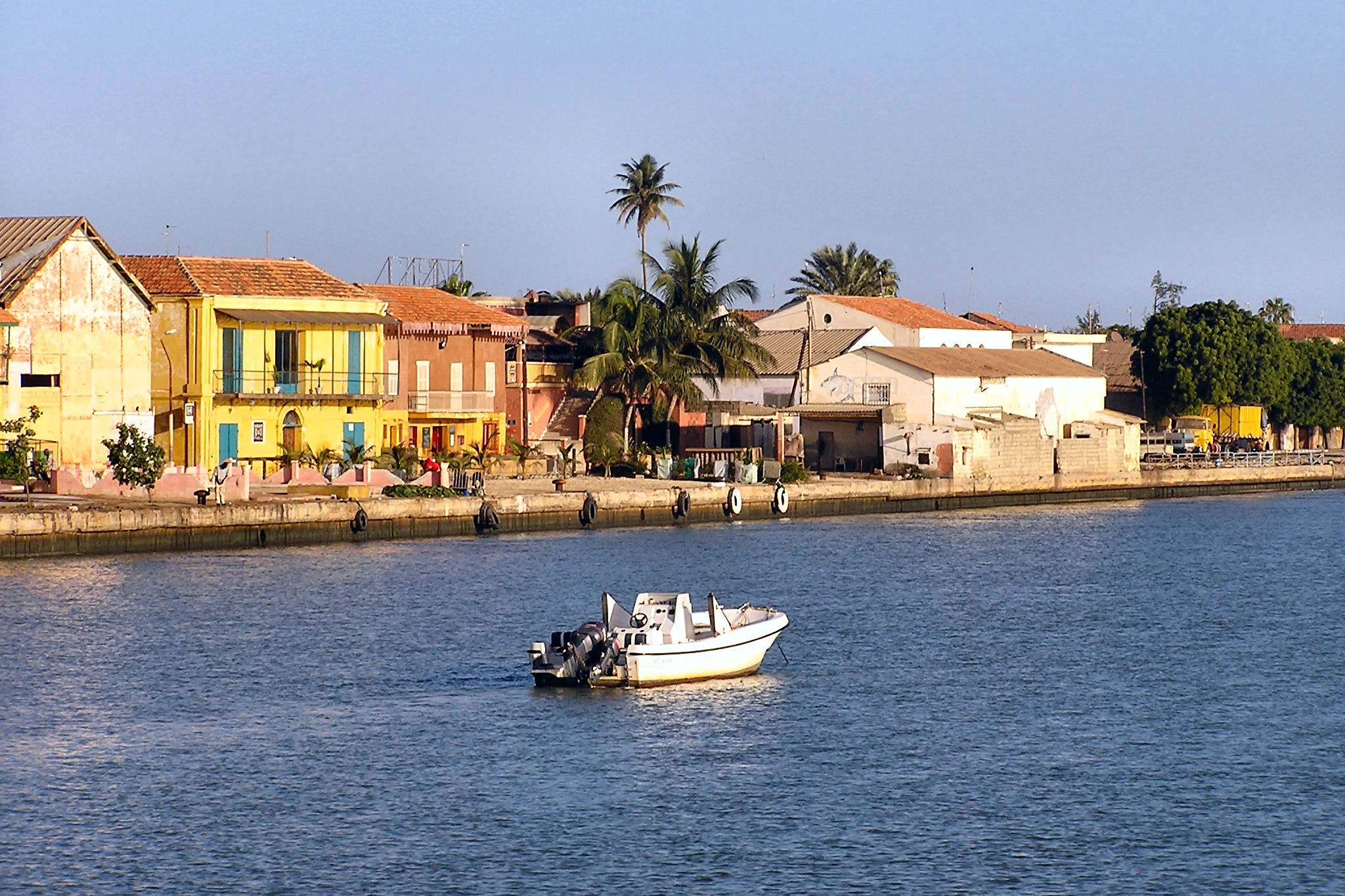|
Institut Français D'Afrique Noire
IFAN (I.F.A.N., Institut fondamental d'Afrique noire or Fundamental Institute of Black Africa) is a cultural and scientific institute in the nations of the former French West Africa. Founded in Dakar, Senegal in 1938 as the Institut français d’Afrique noire (French Institute of Black Africa), the name was changed only in 1966. It was headquartered in what is now the building of the IFAN Museum of African Arts. Since its founding, its charge was to study the language, history, and culture of the peoples ruled by French colonialism in Africa. Early history IFAN first formed from a combination of three forces: the French colonial " Civilizing mission", the desire for more efficient Indirect rule through the understanding of African cultures, and research into the resources of the French dominion in Africa. Governors General Ernest Roume (1902–1908) and William Ponty (1908–1914) oversaw a reorganization of the French higher educational system in the colonies, and placing G ... [...More Info...] [...Related Items...] OR: [Wikipedia] [Google] [Baidu] |
Sub-Saharan Africa
Sub-Saharan Africa is, geographically, the area and regions of the continent of Africa that lies south of the Sahara. These include West Africa, East Africa, Central Africa, and Southern Africa. Geopolitically, in addition to the List of sovereign states and dependent territories in Africa, African countries and territories that are situated fully in that specified region, the term may also include polities that only have part of their territory located in that region, per the definition of the United Nations (UN). This is considered a non-standardized geographical region with the number of countries included varying from 46 to 48 depending on the organization describing the region (e.g. UN, WHO, World Bank, etc.). The Regions of the African Union, African Union uses a different regional breakdown, recognizing all 55 member states on the continent - grouping them into 5 distinct and standard regions. The term serves as a grouping counterpart to North Africa, which is instead ... [...More Info...] [...Related Items...] OR: [Wikipedia] [Google] [Baidu] |
Bamako
Bamako ( bm, ߓߡߊ߬ߞߐ߬ ''Bàmakɔ̌'', ff, 𞤄𞤢𞤥𞤢𞤳𞤮 ''Bamako'') is the Capital city, capital and largest city of Mali, with a 2009 population of 1,810,366 and an estimated 2022 population of 2.81 million. It is located on the Niger River, near the rapids that divide the upper and middle Niger valleys in the southwestern part of the country. Bamako is the nation's administrative centre. The city proper is a Cercles of Mali, cercle in its own right. Bamako's Inland port, river port is located in nearby Koulikoro, along with a major regional trade and conference center. Bamako is the seventh-largest West Africa, West African urban center after Lagos, Abidjan, Kano (city), Kano, Ibadan, Dakar, and Accra. Locally manufactured goods include textiles, processed meat, and metal goods as well as mining. Commercial fishing occurs on the Niger River. The name Bamako ( ''Bàmakɔ̌'' in Bambara language, Bambara) comes from the Bambara word meaning "crocodile river". ... [...More Info...] [...Related Items...] OR: [Wikipedia] [Google] [Baidu] |
Abidjan
Abidjan ( , ; N'Ko script, N’ko: ߊߓߌߖߊ߲߬) is the economic capital of the Ivory Coast. As of the Demographics of Ivory Coast, 2021 census, Abidjan's population was 6.3 million, which is 21.5 percent of overall population of the country, making it the sixth most populous city proper in Africa, after Lagos, Cairo, Kinshasa, Dar es Salaam, and Johannesburg. A cultural crossroads of West Africa, Abidjan is characterised by a high level of industrialisation and urbanisation. It also is one of the most populous French-speaking cities in Africa. The city expanded quickly after the construction of a new wharf in 1931, followed by its designation as the capital city of the then-French colony in 1933. The completion of the Vridi Canal in 1951 enabled Abidjan to become an important sea port. Abidjan remained the capital of the Ivory Coast after its independence from France in 1960. In 1983, the city of Yamoussoukro was designated as the official political capital of Ivory Coast. Ho ... [...More Info...] [...Related Items...] OR: [Wikipedia] [Google] [Baidu] |
Saint-Louis, Senegal
Saint Louis or Saint-Louis ( wo, Ndar), is the capital of Senegal's Saint-Louis Region. Located in the northwest of Senegal, near the mouth of the Senegal River, and 320 km north of Senegal's capital city Dakar, it has a population officially estimated at 258,592 in 2021. Saint-Louis was the capital of the French colony of Senegal from 1673 until 1902 and French West Africa from 1895 until 1902, when the capital was moved to Dakar. From 1920 to 1957, it also served as the capital of the neighboring colony of Mauritania. The town was an important economic center during French West Africa, but it is less important now. However it still has important industries, including tourism, a commercial center, a center of sugar production, and fishing. The Tourism industry is in part due to the city being listed as a UNESCO World Heritage Site in 2000. However, the city is also Climate change vulnerability, vulnerable to climate change—where sea level rise is expected to threaten the ci ... [...More Info...] [...Related Items...] OR: [Wikipedia] [Google] [Baidu] |
Minister Of Overseas France
The Minister of the Overseas (french: Ministre des Outre-mer) is the official in charge of the Ministry of the Overseas in the Government of the French Republic, responsible for overseeing Overseas France. The office was titled Minister of the Colonies (french: Ministre des Colonies, links=no) until 1946. The position is currently held by Jean-François Carenco, who succeeded Élisabeth Borne (as acting minister) on 4 July 2022. Officeholders Minister of the Colonies (1894–1946) * 20 March – 30 May 1894 : Ernest Boulanger * 30 May 1894 – 26 January 1895 : Théophile Delcassé * 26 January – 1 November 1895 : Émile Chautemps * 4 November 1895 – 29 April 1896 : Pierre-Paul Guieysse * 29 April 1896 – 31 May 1898 : André Lebon * 31 May – 28 June 1898 : Gabriel Hanotaux * 28 June – 1 November 1898 : Georges Trouillot * 1 November 1898 – 22 June 1899 : Florent Guillain * 22 June 1899 – 7 June 1902 : Albert Decrais * 7 June 1902 – 24 January 1905 ... [...More Info...] [...Related Items...] OR: [Wikipedia] [Google] [Baidu] |
Communist Study Groups
Communist Study Groups (in French: ''Groupes d'Etudes Communistes''), was a communist group in colonial French West Africa/French Equatorial Africa. GEC was founded in 1943, under the influence of the French Communist Party. GEC formed branches in the capital cities of the West African territories. GEC was primarily based amongst intellectuals. It was led by Suret-Canale and Cauche. In the 1946 French legislative elections, GEC received 1180 votes (0.9%) in Senegal. In Senegal, GEC evolved into the Senegalese Democratic Union, section of the African Democratic Rally. In Bamako, Modibo Keita was a prominent member of GEC. GEC supported his candidacy in the elections to the Constituent Assembly of the Fourth Republic in 1945. In February 1946 the first GEC group was established in French Equatorial Africa, founded by Europeans in Brazzaville Brazzaville (, kg, Kintamo, Nkuna, Kintambo, Ntamo, Mavula, Tandala, Mfwa, Mfua; Teke: ''M'fa'', ''Mfaa'', ''Mfa'', ''Mfoa''Roman Adria ... [...More Info...] [...Related Items...] OR: [Wikipedia] [Google] [Baidu] |
African Democratic Rally
African or Africans may refer to: * Anything from or pertaining to the continent of Africa: ** People who are native to Africa, descendants of natives of Africa, or individuals who trace their ancestry to indigenous inhabitants of Africa *** Ethnic groups of Africa *** Demographics of Africa *** African diaspora ** African, an adjective referring to something of, from, or related to the African Union ** Citizenship of the African Union ** Demographics of the African Union **Africanfuturism ** African art ** *** African jazz (other) ** African cuisine ** African culture ** African languages ** African music ** African Union ** African lion, a lion population in Africa Books and radio * ''The African'' (essay), a story by French author J. M. G. Le Clézio * ''The African'' (Conton novel), a novel by William Farquhar Conton * ''The African'' (Courlander novel), a novel by Harold Courlander * ''The Africans'' (radio program) Music * "African", a song by Peter Tosh f ... [...More Info...] [...Related Items...] OR: [Wikipedia] [Google] [Baidu] |
Popular Front (Senegal)
Ahead of the 1936 elections to the French National Assembly, a Popular Front committee was formed in Senegal. It consisted of the local branch of French Section of the Workers' International (SFIO), the Senegalese Socialist Party, the local Communist cell, the Human Rights League, and the local branch of the Radical and Radical Socialist Party led by François Carpot. The committee supported the candidature of Lamine Guèye. See also * Popular Front (France) The Popular Front (french: Front populaire) was an alliance of French left-wing movements, including the communist French Communist Party (PCF), the socialist French Section of the Workers' International (SFIO) and the progressive Radical-S ... 1936 establishments in French West Africa Defunct left-wing political party alliances Defunct political parties in Senegal Defunct political party alliances in Africa Defunct socialist parties French West Africa Political parties established in 1936 Political p ... [...More Info...] [...Related Items...] OR: [Wikipedia] [Google] [Baidu] |
Jean Suret-Canale
Jean Suret-Canale (27 April 1921 – 23 June 2007) was a French historian of Africa, Marxist theoretician, political activist, and World War II French Resistance fighter. Suret-Canale was born to father Victor Suret-Canale (1883–1958), an engraver educated at École nationale supérieure des arts décoratifs, and Thérèse Suret-Canale, a German painter educated first in Germany and then at the Académie Julian in Paris. As a student, he won scholarships to study in the colony of Dahomey (Benin) in 1938 and French Indochina in 1939. He returned to France, and was an underground member of the ''jeunesses communistes'' resistance from 1940 to 1944. During this time he met his wife, Georgette, a feminist journalist, novelist and poet. He received a degree from the Université de Paris (1946) in geography, specialising in the countries of West Africa and African studies. Returning to French West Africa after the war, he engaged in political and trade union organizing, taught seconda ... [...More Info...] [...Related Items...] OR: [Wikipedia] [Google] [Baidu] |
Second World War
World War II or the Second World War, often abbreviated as WWII or WW2, was a world war that lasted from 1939 to 1945. It involved the vast majority of the world's countries—including all of the great powers—forming two opposing military alliances: the Allies and the Axis powers. World War II was a total war that directly involved more than 100 million personnel from more than 30 countries. The major participants in the war threw their entire economic, industrial, and scientific capabilities behind the war effort, blurring the distinction between civilian and military resources. Aircraft played a major role in the conflict, enabling the strategic bombing of population centres and deploying the only two nuclear weapons ever used in war. World War II was by far the deadliest conflict in human history; it resulted in 70 to 85 million fatalities, mostly among civilians. Tens of millions died due to genocides (including the Holocaust), starvation, ma ... [...More Info...] [...Related Items...] OR: [Wikipedia] [Google] [Baidu] |




